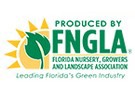Over the course of two days next month, UF/IFAS will continue its work on charting a course for the green industry for the next 30 years. The Urban Landscape Summit is back in person (though you can tap into it on Zoom) on April 19-20 in Gainesville. It’s one of our most important symposia because it represents a direct effort to confront the sustainability of a Florida with millions more residents.
That means speaking science to those residents. That can be as much of a challenge as developing the science. That’s why you’ll see the words “attitudes,” “preferences,” and “stakeholder education” throughout the agenda.
So why do so few homeowners consciously adopt the basics of right plant right place, water efficiently, fertilize appropriately and the other six principles? A big part of the agenda of this year’s summit is about science communication.
UF/IFAS faculty and a water management district communicator will present their findings about “Adjusting Irrigation Attitudes.” Basil Iannone of the UF/IFAS School of Forest, Fisheries, and Geomatics Sciences has a session on making invasive species terminology more consistent and comprehensible to our audiences. A social science team will delve into “Scaling up landscape behavior change.”
Michael Dukes organizes the annual summit to keep our focus on the big-picture goal of changing our lawns and landscapes to avoid the worst-case water use projections for 2070.
Michael’s vision in creating the Center for Land Use Efficiency has been to bring together plant sciences, engineering and social scientists to share information on what Floridians can do to reduce water use and improve water quality. This includes grappling with how we can do more to promote behavioral change to reflect what we already know.
Your participation can help us incorporate more real-world experience into what our faculty are finding under the controlled conditions of our research. I hope some of you will join Ben at the summit and add your voice to the conversation.
For more information
FNGLA 
1533 Park Center Drive
Orlando, FL 32835-5705
Toll-Free: +1 (800) 375-3642
T: +1 (407) 295-7994
F: +1 (407) 295-1619
Email: info@fngla.org
www.fngla.org
